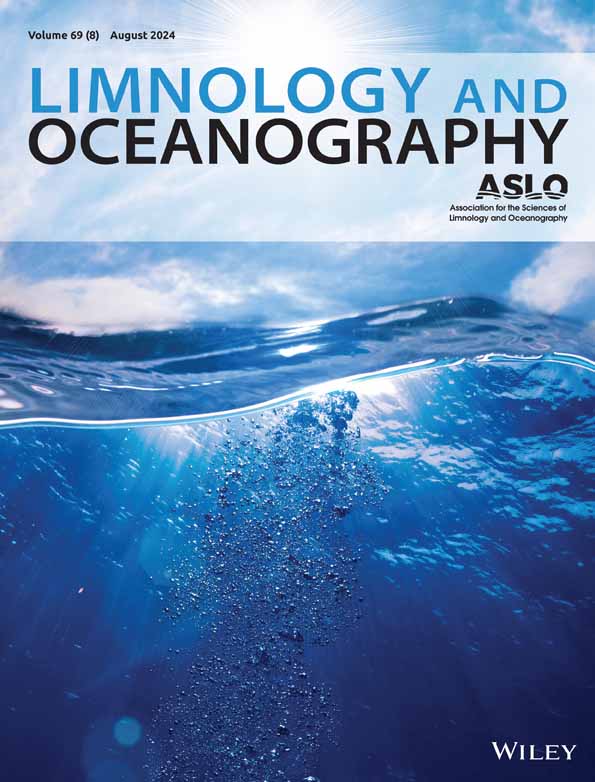通过群落结构分析揭示气候变化对高山湖泊的影响
IF 3.8
1区 地球科学
Q1 LIMNOLOGY
引用次数: 0
摘要
气候变化的压力可能引发生态系统的制度转变。在关键的过渡之前识别这些压力的迹象仍然具有挑战性,并且预测政权转变可能是有用的。在本研究中,我们以湖泊生态系统为例,分析了从无植被、浮游植物为主的状态转变为大型植物为主的状态时,变暖作为缓慢驱动因素的作用。为此,我们将压力驱动因素和响应变量的时间序列分析与湖泊群落食物网结构的定性分析相结合。所获得的关于浮游生物种群对模拟的由变暖引起的压力扰动的反应的预测与观测到的浮游生物丰度水平的变化一致,证实了变暖是一个缓慢的驱动因素,并揭示了其影响的机制基础。本案例研究提出了一种解释受缓慢压力驱动的生态系统早期变化的新方法,将工具箱扩展到统计特征分析和操作实验之外。气候变化逐渐改变了生态系统所面临的外部条件,本文提出的方法可以帮助监测它们对气候变化的反应。本文章由计算机程序翻译,如有差异,请以英文原文为准。
Disentangling the effects of climate change in a mountain lake through community structure analysis
Pressures of climate change may trigger regime shifts in ecosystems. Identifying signs of these pressures before the critical transition remains challenging, and it could be useful to anticipate the regime shift. In this research, while exploiting the case of a lacustrine ecosystem, which passed from an unvegetated, phytoplankton‐dominated state to a macrophyte‐dominated regime, we analyzed the role of warming as a slow driver when far from the regime shift. To this end, we combined the analysis of the time series of the driver of pressure and of the response variables with the qualitative analysis of the lake community food web structure. Predictions obtained about the response of plankton populations to simulated press perturbations due to warming were consistent with observed variation in their levels of abundance, confirming that warming was a slow driver and unveiling the mechanistic basis of its effects. This case study suggests a novel approach to interpret early changes in ecosystems subjected to slow drivers of pressure, extending the toolkit beyond the analysis of statistical signature and manipulative experiments. Climatic variations gradually alter the external conditions that ecosystems face, and the approach presented here could help monitor their responses to climate change.
求助全文
通过发布文献求助,成功后即可免费获取论文全文。
去求助
来源期刊

Limnology and Oceanography
地学-海洋学
CiteScore
8.80
自引率
6.70%
发文量
254
审稿时长
3 months
期刊介绍:
Limnology and Oceanography (L&O; print ISSN 0024-3590, online ISSN 1939-5590) publishes original articles, including scholarly reviews, about all aspects of limnology and oceanography. The journal''s unifying theme is the understanding of aquatic systems. Submissions are judged on the originality of their data, interpretations, and ideas, and on the degree to which they can be generalized beyond the particular aquatic system examined. Laboratory and modeling studies must demonstrate relevance to field environments; typically this means that they are bolstered by substantial "real-world" data. Few purely theoretical or purely empirical papers are accepted for review.
 求助内容:
求助内容: 应助结果提醒方式:
应助结果提醒方式:


